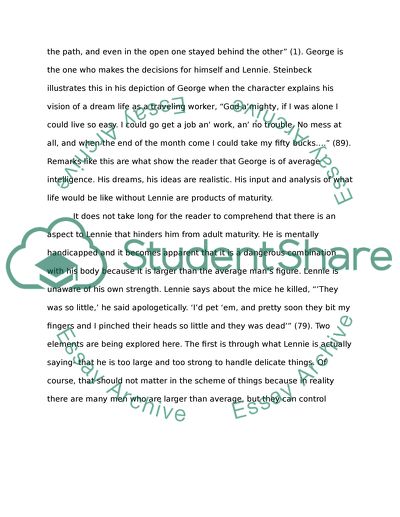Cite this document
(“Analysis of Lennie and Georges Relationship in Of Mice and Men Coursework”, n.d.)
Retrieved from https://studentshare.org/literature/1423953-analysis-of-lennie-and-georges-relationship-in-of-mice-and-men
Retrieved from https://studentshare.org/literature/1423953-analysis-of-lennie-and-georges-relationship-in-of-mice-and-men
(Analysis of Lennie and Georges Relationship in Of Mice and Men Coursework)
https://studentshare.org/literature/1423953-analysis-of-lennie-and-georges-relationship-in-of-mice-and-men.
https://studentshare.org/literature/1423953-analysis-of-lennie-and-georges-relationship-in-of-mice-and-men.
“Analysis of Lennie and Georges Relationship in Of Mice and Men Coursework”, n.d. https://studentshare.org/literature/1423953-analysis-of-lennie-and-georges-relationship-in-of-mice-and-men.


